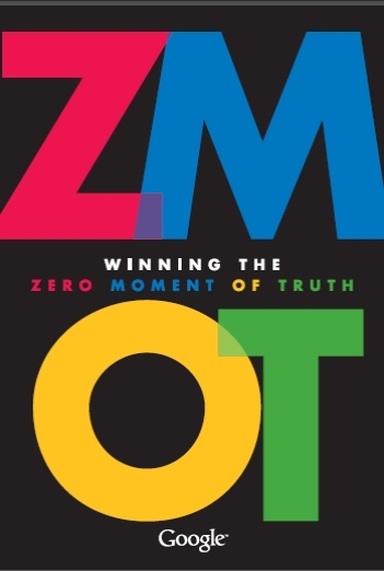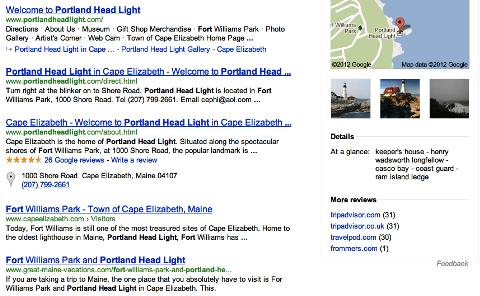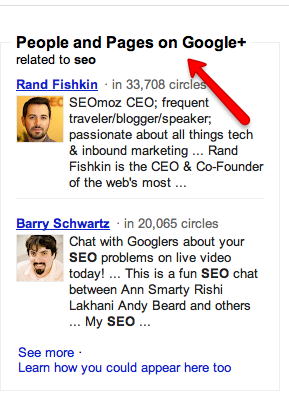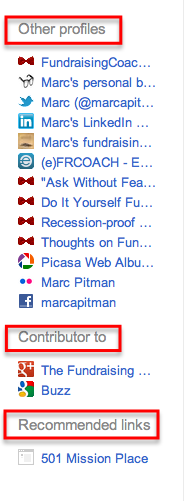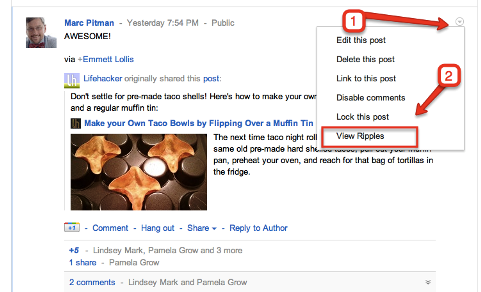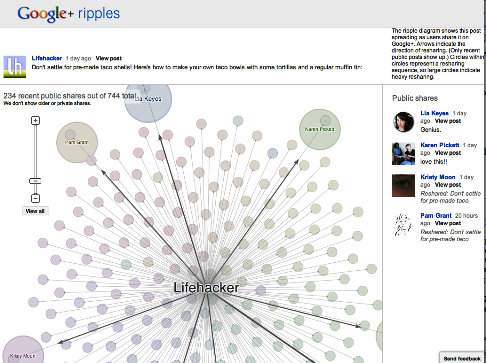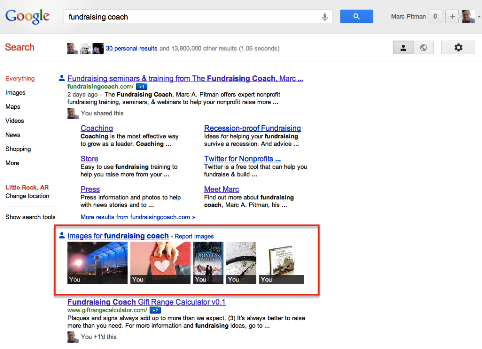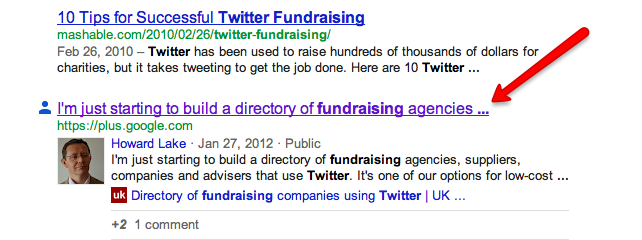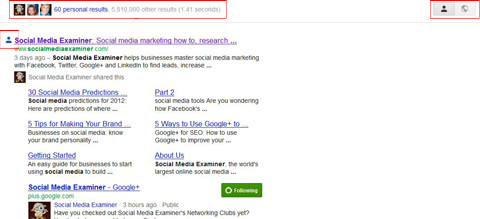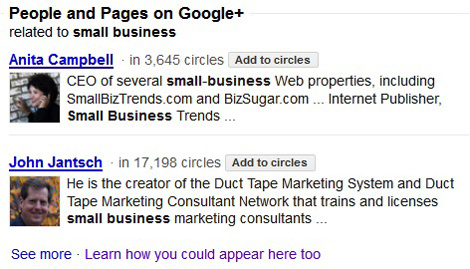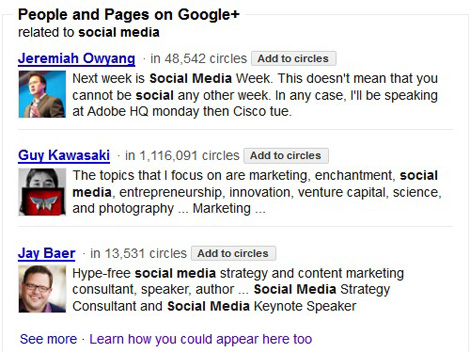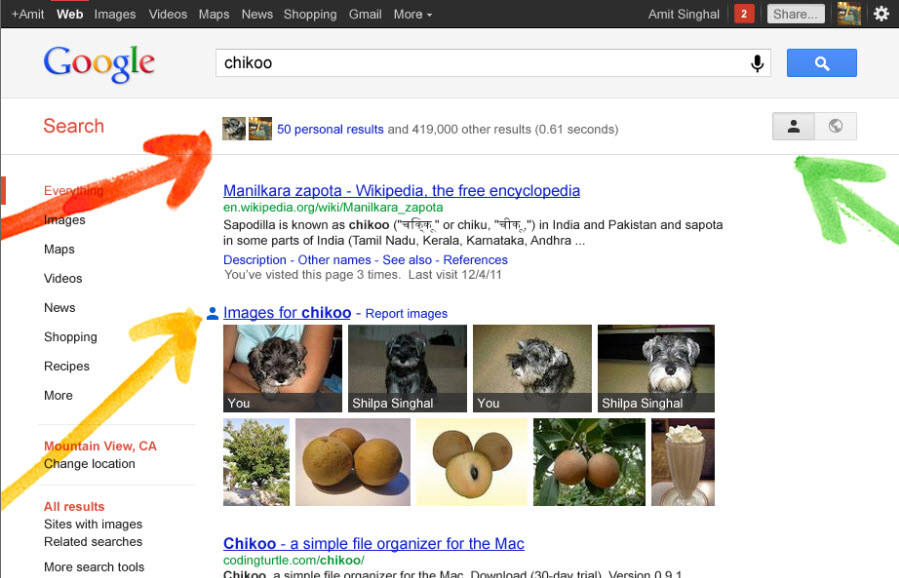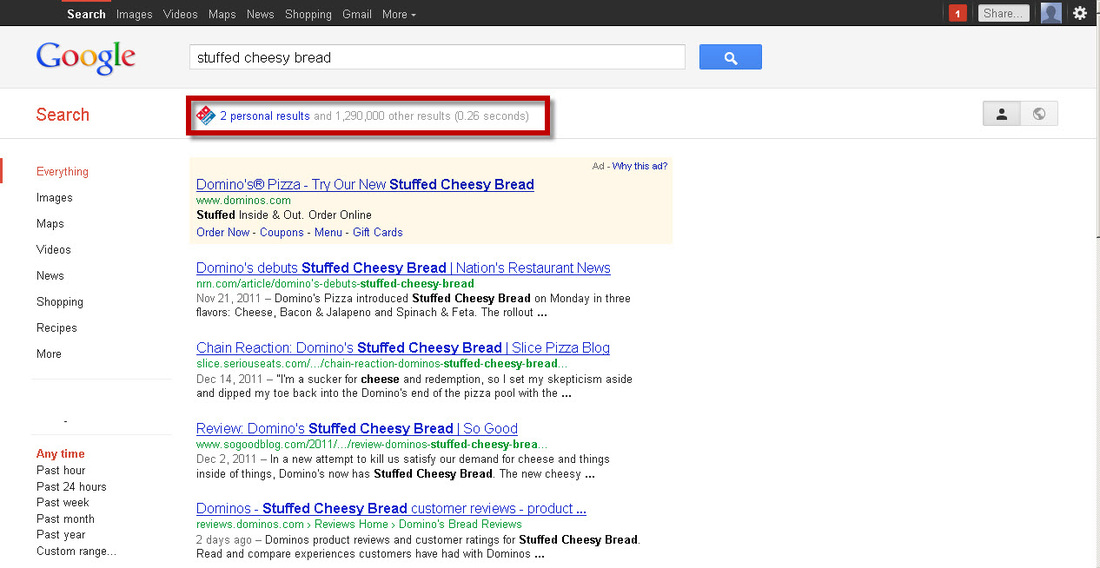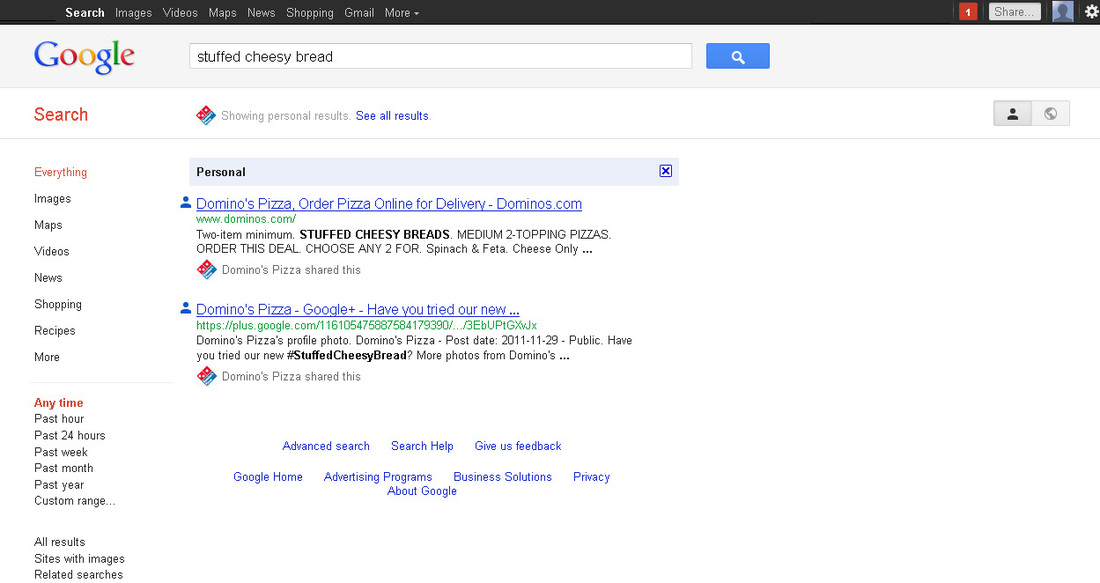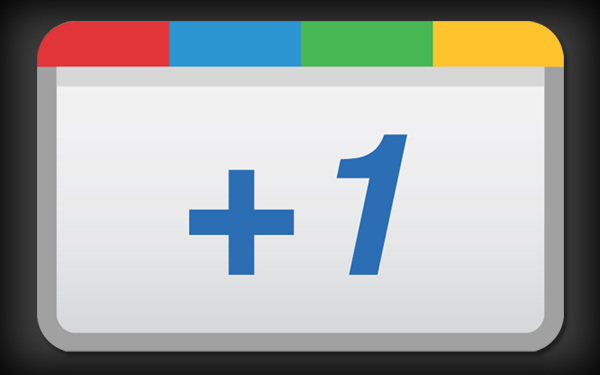Everything You Need To Know About Google+
Google+ Promotion May Improve Organic Search Ranking
Stick to collecting followers instead of +1s, though, for optimal results.
Although previous studies have concluded that social media really does a shoddy job at driving traffic to your websites, TastyPlacement conducted a short experiment to assess a similar concept. More specifically, the group investigated whether social media engagement can help boost a website’s organic search engine ranking.
To see if you can really drive up an organic search engine ranking using some social media sites you may have heard of, TastyPlacement created about as controlled of an experiment as you could do within the vast petri dish that is the internet. As it turns out, collecting Google+ followers seems to be the best way to push a site’s ranking up by as much as 14.63%. Facebook and Twitter showed signs of improving organic search results but not nearly to the degree of promoting via Google+ followers (canvasing for +1s on Google+ resulted in a slightly lesser push in search ranking, but still wasn’t too bad). The only promotional strategy that didn’t seem to improve a site’s ranking was by recruiting Twitter followers.
Have a look at the full infographic detailing the experiment and its results done by TastyPlacement, and feel free to comment with any of your experience or thoughts below.
To see if you can really drive up an organic search engine ranking using some social media sites you may have heard of, TastyPlacement created about as controlled of an experiment as you could do within the vast petri dish that is the internet. As it turns out, collecting Google+ followers seems to be the best way to push a site’s ranking up by as much as 14.63%. Facebook and Twitter showed signs of improving organic search results but not nearly to the degree of promoting via Google+ followers (canvasing for +1s on Google+ resulted in a slightly lesser push in search ranking, but still wasn’t too bad). The only promotional strategy that didn’t seem to improve a site’s ranking was by recruiting Twitter followers.
Have a look at the full infographic detailing the experiment and its results done by TastyPlacement, and feel free to comment with any of your experience or thoughts below.
Google
The ZERO MOMENT OF TRUTH
See the video and file
8 Ways to Drive Traffic to Your Site With Google+
|
3 Ways Google Social Search Should Change Your Marketing
|
How Google+ 1 Button Affects SEO
Since the days of Google Buzz, the +1 button has been a mystery to users and content producers alike. It’s different from Facebook’s “Like” button, in that it doesn’t directly share content to a user’s social stream. But the cultivation of a social graph has long been the goal of Google, and its connection to search was likely inevitable.
Google defines the +1 as a feature to help people discover and share relevant content from the people they already know and trust. Users can +1 different types of content, including Google search results, websites, and advertisements. Once users +1 a piece of content, it can be seen on the +1 tab in their Google+ profile, in Google search results, and on websites with a +1 button.
The plot thickened last month when Google launched Search plus Your World. Jack Menzel, director of product management for Google Search, explained that now Google+ users would be able to “search across information that is private and only shared to you, not just the public web.” According to Ian Lurie from the blogConversation Marketing, in Search plus Your World, search results that received a lot of +1s tend to show up higher in results.
Google has come out and described the purpose of a +1, but hasn’t necessarily explained the direct effect a +1 has on search ranking. Here’s a breakdown of what we currently know.Does a +1 Affect my Site’s Performance in Social Search?The +1 has an indirect effect on your site’s search rank. This does not mean the more +1’s a link has, the higher rank it achieves in traditional search results. Take this scenario:
When a Google+ user +1’s a piece of content, he gives it his “stamp of approval.” Then, say one of his connections from Google+ searches for the same or related topic. Because of Search plus Your World, his friend is more likely to click on the same link the original user +1’d (when a signed-in user searches, his Google results may include snippets annotated with the names of connections who have +1′d the content). This is because content recommended by friends and acquaintances is often more relevant than content from strangers, according to Google.
Google defines the +1 as a feature to help people discover and share relevant content from the people they already know and trust. Users can +1 different types of content, including Google search results, websites, and advertisements. Once users +1 a piece of content, it can be seen on the +1 tab in their Google+ profile, in Google search results, and on websites with a +1 button.
The plot thickened last month when Google launched Search plus Your World. Jack Menzel, director of product management for Google Search, explained that now Google+ users would be able to “search across information that is private and only shared to you, not just the public web.” According to Ian Lurie from the blogConversation Marketing, in Search plus Your World, search results that received a lot of +1s tend to show up higher in results.
Google has come out and described the purpose of a +1, but hasn’t necessarily explained the direct effect a +1 has on search ranking. Here’s a breakdown of what we currently know.Does a +1 Affect my Site’s Performance in Social Search?The +1 has an indirect effect on your site’s search rank. This does not mean the more +1’s a link has, the higher rank it achieves in traditional search results. Take this scenario:
When a Google+ user +1’s a piece of content, he gives it his “stamp of approval.” Then, say one of his connections from Google+ searches for the same or related topic. Because of Search plus Your World, his friend is more likely to click on the same link the original user +1’d (when a signed-in user searches, his Google results may include snippets annotated with the names of connections who have +1′d the content). This is because content recommended by friends and acquaintances is often more relevant than content from strangers, according to Google.

